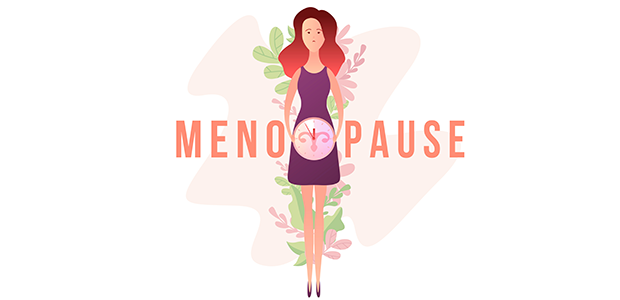
5 steps to help women thrive & rise in their careers
October is World Menopause Awareness Month providing a great opportunity to expand on the increasingly noisy discussions taking place about this important subject.
Progress is being made in the workplace, but perimenopause and menopause continues to negatively impact many women’s careers.
Women over the age of 50 are the largest growing demographic of the UK workforce with many of them navigating careers alongside menopause. A recent survey published by the CIPD found that 67% of women said their symptoms were having a mostly negative effect on them at work.
A lack of support, awareness, diagnosis, and treatment are forcing many talented individuals out of their careers. 1 in 10 will quit and up to a million already have.
“It is an unnecessary loss of talent, experience, and wisdom. It does nothing to support the gender pay gap and gender equity. It devalues the decades of hard work, sacrifice, and dedication that women have invested into their careers,” says Anna Allerton, Consultant and Executive Coach specialising in supporting women maintain their careers during this time.
This is something that Anna has experienced firsthand. Anna’s 17-year career as a TV Producer imploded when perimenopause began for her at the age of 38.
“Anxiety, insomnia, palpitations, low confidence, and pain left me feeling a shell of my former self. At its worst, I believed I was going mad or had a form of early onset dementia. It all began when I was returning to work after the birth of my second daughter. Dismissed by my doctor and others as being ‘too young’ for perimenopause, I spent over 10 months trying to seek out the correct treatment. All while parenting two children under the age of three and trying to maintain a high-pressured job. Something had to give.”
Distilling knowledge drawn from her own experience together with the multiple individuals and organisations through Allerton Consulting, Anna ensures women have the confidence, support, and ability to thrive and deliver ongoing impact in business. Below are Anna’s five steps women can take to help when navigating this tricky time.
-
Working smarter
Inspired by professional women’s sport, exploring the power of cycle mapping and symptom tracking can empower women to take action. This involves keeping a daily log to build up your own personalised data that informs you about trends and patterns of behaviour. Much like female athletes who train around their hormones and cycle to reduce injury, your data can show how you can work smarter, so you can remain productive in your career. For example, if there’s a trend of when your anxiety ramps up across the month, or certain periods of time where insomnia is at its worst – you can begin to formulate a plan to address these rather than muddling on.
-
Treat the symptoms
Data suggests that up to 45% of women haven’t discussed this with their GP but in doing so you are taking back some power over your hormones. Not everyone will have a great experience with a GP so learning to advocate for yourself is a valuable learning tool to embrace). A log of your symptoms can be a great resource to share with your GP. Don’t let other people’s bad experience put you off from discussing this. Treating your symptoms will positively impact your performance at work but be prepared it may take some time. And I don’t just mean get a prescription for HRT – a deep dive into nutrition, exercise and self-care can work wonders to help you show up as your best self at this time.
-
It’s good to talk
This is not just about women in their fifties getting hot and angry. If we can break the stigma about menopause in the workplace, we can begin to normalise this subject when it comes up at work. If women feel empowered to talk about this with allies, colleagues, or managers, they can begin to collaborate to work through solutions to make work more manageable. But – business leaders have to meet us halfway. Some women say they would rather quit than talk about this with their boss. There’s no point raising this at work if the foundations of support are not in place. We all could do with embracing getting comfortable with the uncomfortable.
-
Not a one size fits all
The ICF Global Coaching Study (2023) found that the majority of coaching clients are female. Organisations who invest in personalised support for female talent can provide deeper and a more professionalised approach to boost retention. For individuals, investing in a professional thinking partner can support raise awareness about your reality at work and take steps to help you implement the changes you need to make. Mentoring can also be a valuable way or seeking allyship, empathy and safety. Business leaders also need to think beyond a catch all policy, avoid box-ticking and chasing accreditations without having an individualised approach. Enabling managers to have access to the tools they need to make these 1:1 conversations productive can do wonders to your retention numbers – and reduce expensive recruitment costs.
-
Self-compassion
Learning to speak to and of ourselves with kindness, not criticism can be important to help us thrive at this time. We can be our own worst critics and need to allow ourselves the time and space to reflect on our strengths. We’ve been through a lot of ups and downs in our careers and need to embrace the experience that journey has afforded us. If imposter syndrome starts to rise up and get louder at this time, being able to turn down that noise by reconnecting with all the amazing things that make you who you are can put us into a more positive mindset to embrace this new chapter of life.

